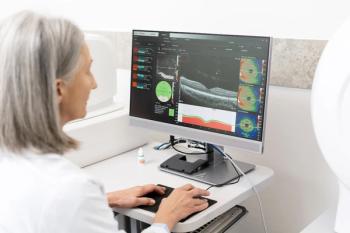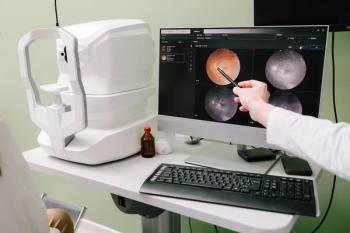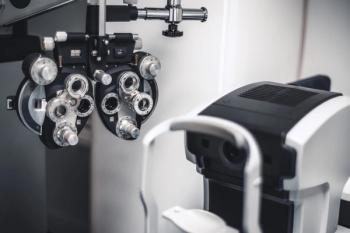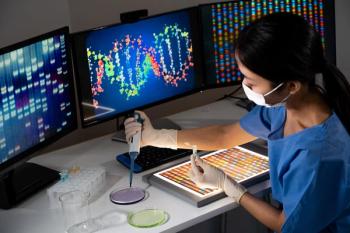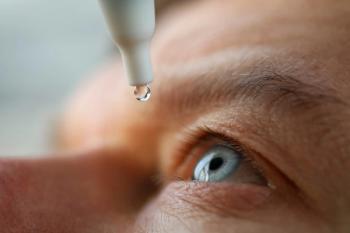
Transcript: Alliance for Patient Safety chair talks contact lenses and the FTC
Dr. Alexander, chair of the Alliance for Patient Safety, discusses recent changes from the FTC on contact lenses.
Ben Casella, OD, FAAO: Hey everybody, how is it going? I am
Deanna Alexander, OD, FAAO: I am great. Thanks for having me this evening.
Dr. Casella: Thank you so much for joining us. It is a pleasure to have you on. And I guess we should just jump right in here. I should say, out of full disclosure, I am a board member of the Healthcare Alliance for Patient Safety. And that is going to be the topic of conversation here, because we have some breaking developments with the Federal Trade Commission's (FTC) ruling and implementation of 7 rules regarding contact lens law, certain things that were taken, and certain actions that have yet to be taken by the FTC.
So back in June, it seems as though the FTC issued a final ruling. Unless you live under a rock, if you are involved in contact lenses in any way, shape, or form, you are probably aware of some new hoops that prescribers of contact lenses may have to jump through. But there has been some breaking developments here. And can you just bring us up to snuff, Dr. Alexander?
Breaking developments
Dr. Alexander: Right. Well, I sure can. As you know, when the rule came out, we were disappointed that it did not address the robocall issue with the verification process. The Health Care Alliance of Patient Safety does have a Senate bill that was introduced in September. We got a lot of momentum with that to work on robocalls and also eliminating the requirement for the doctor having to have the patient sign a release form. Well, we gained a lot of momentum. We are hoping we will see that in 2021.
But recently, the Health Care Alliance for Patient Safety was able to put in language to delay the implementation of the final contact lens rule as far as enforcement goes. So, that will put in language about how we were disappointed about the robocalls but also the paperwork requirement that will give doctors of optometry and ophthalmology more time to implement these changes. You know, certainly we are all recovering from all of the COVID protocols that we have. This really is not a time that we want to be spending doing extra paperwork that extends the enforcement until the end of March 31, 2021.
So, we are very excited about that. That bill was signed into law on Sunday evening.
FTC’s latest rulings
Dr. Casella: That is outstanding news. And thank you for that update. Dr. Alexander, I read the Alliance for Patient Safety press release, which went out the 28th, and we are recording this on the 29th. So this is hot off the press, it seems as though the word “burdensome” would come to mind even in a non-global pandemic society several years ago. By the FTC’s own estimates, having a patient sign a document and keeping said document for a 3-year period would cost upwards of $10.5. As a cost of health care, just in the first year, independent estimates have marked that price tag higher in some cases.
It seems as though “burdensome” is a fair term considering it is already law that a prescriber has to furnish a patient with his or her contact lens prescription. As a prescriber of contact lenses, I applaud the APS’s efforts here, and this is a big win for patient safety.
It seems as though the robocall part of this whole series of events is gaining some traction as well. Could you speak to that?
Robocalls
Dr. Alexander: Yes, we have a House bill that has been out for about a year on that. And our Senate bill, as well.
We gained a lot of momentum in December, even considering COVID and everything going on in Congress. So, we expect to see a lot of momentum after the first of the year with this bill, and hopefully we will be able to eliminate that practice. It really is not a way that you need to verify healthcare information. There are too many inaccuracies. And there is more than just that. If doctors follow the rules, patients follow the rules, and sellers follow the rules, then I think we should be fine. But there is just no place for robocalls.
Dr. Casella: I agree with you 100 percent. And the clinician in me just can't help but fall back on the fact that if a patient gets an inaccurate prescription, an outdated prescription, or what have you, that is not right for him or her. I am also the last person to see that patient before that would happen. It seems as though it is taking away from the doctor-patient relationship. It is something that I hope optometry continues to stay abreast of, as we have. And we all know that these things take a while to implement. And we are still in the middle of a global pandemic.
Speaking of which, how are things in Colorado as far as COVID is concerned?
Dr. Alexander: Well, you know, we are just like every other state. COVID is pretty prevalent here. But optometry, we have done really well. And my office is open, we are seeing patients, we are busy, remaining safe. We are hoping we are in the next group of healthcare providers to get the vaccine. We should find out shortly, actually, when we should be able to get it. So, we are on the frontlines, just like everybody else, taking care of people, happy to be open. That was a rough time in the spring for all of us. So, I don't want to go through that again. But I feel good about how we are taking care of people. I think it is a compliment to the doctors that we are all very busy and people still feel safe to come see us and get their eyes taken care of. It is important. You know, we do not want to put off that eye care.
Dr. Casella: Eye care is health care. Well said, Dr. Alexander. I really appreciate you joining us and giving us updates on all of the hard-fought efforts that optometry, our colleagues, and our partners are undertaking on behalf of our patients and on behalf of the health care of Americans. I wish you good health and a Happy New Year. It is December 29 when we are recording this, and I hope sincerely that we get to see each other in person soon.
Dr. Alexander: Yes, thank you so much. Appreciate you having me.
Newsletter
Want more insights like this? Subscribe to Optometry Times and get clinical pearls and practice tips delivered straight to your inbox.


